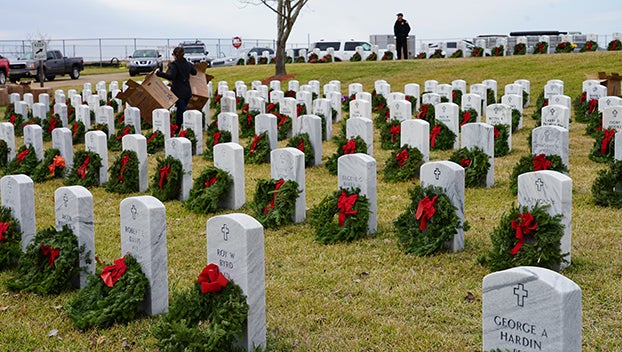Training, control key for guards
Published 12:08 am Friday, May 25, 2012
FERRIDAY — Keeping a prison population docile isn’t always easy, but there are things that can be done to help diffuse prisoner tension and control situations before they happen.
Concordia Parish Sheriff Randy Maxwell said his office responded to the prisoner riot at the Adams County Correctional Center Sunday by sending its Special Response Team to help contain the situation.
“We had everybody on standby and ready to go, and we had the (Louisiana) state SRT team on standby, too,” Maxwell said. “We could have gotten a lot of people there if need be — there were somewhere in the neighborhood of 200-300 deputies on standby who could get out there very quickly.”
Similar arrangements for support from surrounding areas are in place should something like that happen at the two Concordia Parish prisons, Concordia and River Correctional Center, Maxwell said, but other measures are taken to reduce the risk such a situation should arise.
Concordia Correctional Center Warden Lance Moore said the prison has implemented a five-day-a-week inspection routine that, since it was started, has cut down inmate complaints and incidents significantly.
“Every morning at 8:30, the chief of security and captain of security, medical supervisor, maintenance department and shift lieutenant and all the officers group up and go into every dorm in the facility,” Moore said. “All of the prisoners are in their rack, and we inspect every facility to make sure that we don’t have any problems.”
The goal of the inspections is to ensure that no mechanical or facility issue has gone unchecked, Moore said, and for both security and medical officers to physically see every inmate in the prison.
“Every inmate in this facility has access to any (administrative) part of this jail, from administration to medical to facilities,” Moore said.
“The maintenance guy goes in and checks the water, toilets, showers — anything that is mechanical — to make sure they are working properly. Medical goes in to check for any emergencies or anything we might have missed. We want to make sure nothing has happened that wasn’t reported.”
The ultimate goal is to guarantee prisoners can’t say they don’t have access to what they need, Moore said.
Grievance forms are available in the dorms if an inmate does have a problem, but Moore said that the daily inspections have reduced those complaints by three-quarters.
But prison officials also recognize that incarceration can be a stressful time in inmates’ lives, and Maxwell said it’s important to keep the prison population occupied.
“Keeping them busy, keeping something in their minds to better themselves, we have GED programs, drug counseling, adult literacy; we try to take all the excuses away and keep them doing something,” Maxwell said.
The facilities have a full-time chaplain to help inmates deal with spiritual and personal crises, and Moore said a number of inmates are enrolled in the religious 12-step self-help program “Celebrate Recovery.”
“We are in mid-stream of the second (Celebrate Recovery) class, and we have had no discipline problems of any of the inmates in that program,” Moore said. “It’s been a really quiet program.”
But even if the prison population is normally easily managed, incidents of inmate violence do occur.
When those incidents do happen, Moore said officers are told to report and assess the situation, and the prison has a checklist protocol to follow of what to do and who to notify.
“The primary thing is to contain it in whatever area it happens,” Moore said. “Contain the situation, then start notifying the sheriff, sheriff’s office, warden, and everybody has certain jobs that they are trained to do. Everybody goes to their point area and they start doing what they are trained to do.”
That training is routinely updated, Maxwell said, and May 6 to 9 Concordia Correctional employees attended riot response exercises in Moundsville, W.V.
“They have a state penitentiary there that has been closed down, and now they use it to train SWAT teams from all over the United States and seven different countries,” Moore said.
“For four days they have scenarios from hostage situations to riots on the yard, to crowd control to any situation that will arise. It is a live scenario where the SWAT teams are brought in, they are told what the situation is, but they don’t tell them how many hostages there are, and you have to go in full throttle and figure it out yourself. Anything that would deal with prisons they teach at this school.”
And, Maxwell said, keeping training up-to-date is important for just such reasons.
“You are going to have incidents from time-to-time,” he said. “You are not running a Sunday school class, it is a prison.”
Moore said the inmates at the parish prison facilities are approximately 75 percent Louisiana Department of Corrections inmates and 25 percent parish prisoners.






